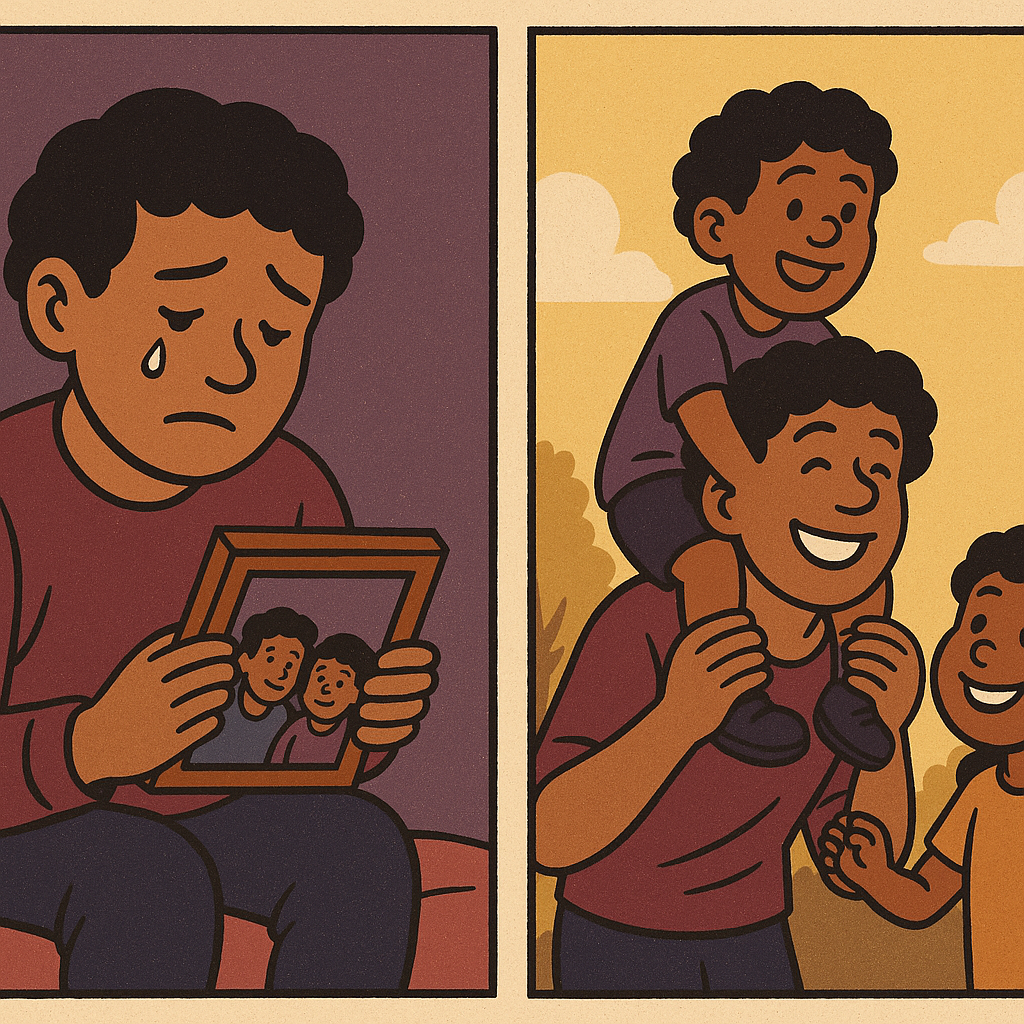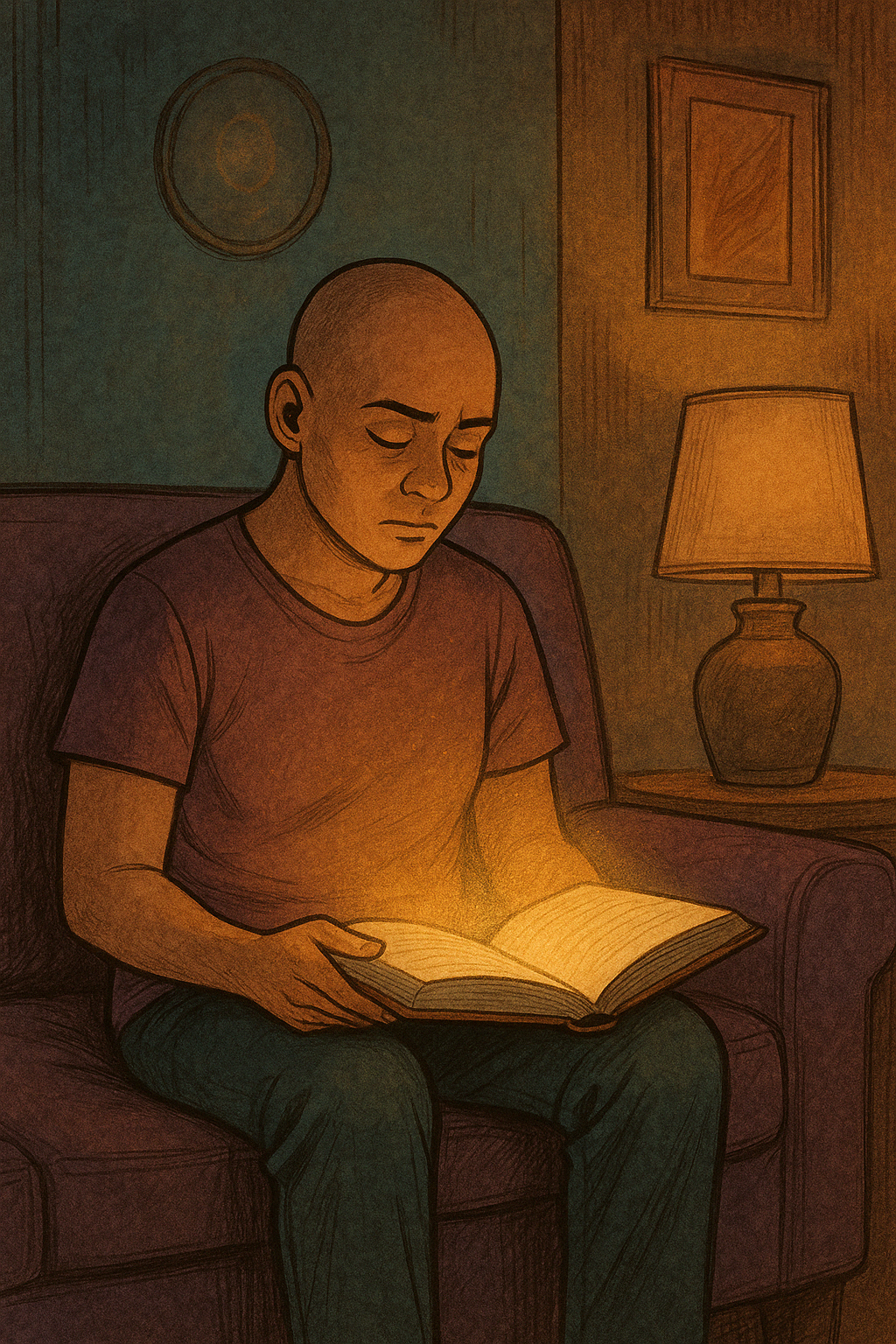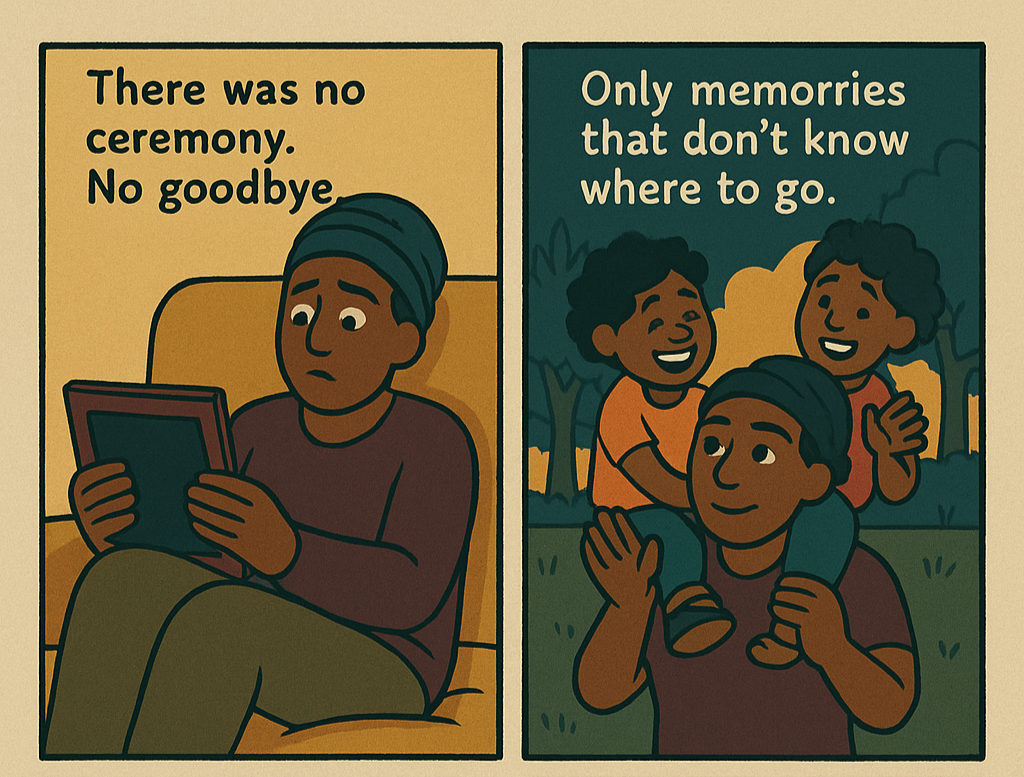Grieving Stepchildren After Separation | The Grief That Has No Name
There’s a particular ache that comes with loving children you didn’t birth—and then losing them without a ceremony, without recognition, without closure.
When the relationship with your partner ends, the children you helped raise often go with them. There’s no legal process for your grief. No ritual to mark that loss. You’re left holding memories, milestones, and a kind of love that still doesn’t know where to go.

In the stillness of that sorrow, I turned to ancient wisdom. Two verses—one from the Tao, one from sacred scripture—echoed back what I could not yet say:
“If you want to become whole, let yourself be partial.
If you want to become straight, let yourself be crooked.
If you want to become full, let yourself be empty.”
— Tao Te Ching, Chapter 22
“Do not conform to the pattern of this world, but be transformed by the renewing of your mind.”
— Romans 12:2
Final Thoughts

Maybe I will always love them.
Maybe I will always wonder who they’re becoming.
And maybe that doesn’t make me broken. Maybe it makes me beautifully human.
-Eagle
These words remind me that grief doesn’t need to be cleaned up, explained, or justified. It doesn’t need to be named to be sacred. This pain, however ambiguous or unseen by others, is still real.
And still transformable.
The Tao tells us to lean into the bend, not fight for a straight path. The epistle reminds us that transformation begins in the mind—not by forcing ourselves to “move on,” but by allowing ourselves to think differently about what wholeness means.





